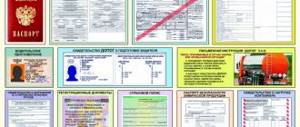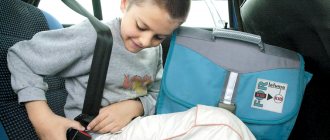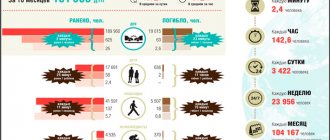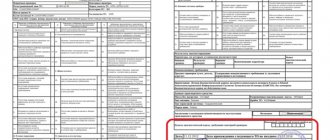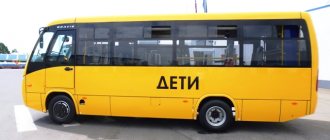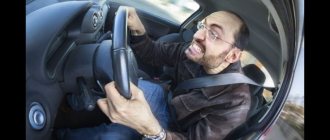“An extra passenger” is usually called a person who is in a vehicle when all the seats that were included in the design by the manufacturer are already occupied by other people.
Transporting an extra passenger in 2021 is an administrative offense for which the perpetrator will be held accountable and required to pay a fine to the traffic police. Many car owners imprudently classify this act as insignificant, although it certainly negatively affects the safety of the trip and can aggravate the severity of the consequences of a traffic accident. The violation is common among both drivers of passenger vehicles and buses.
Attention! If you have any questions, you can chat for free with a lawyer at the bottom of the screen or call Moscow; Saint Petersburg; Free call for all of Russia.
What is the fine for an extra passenger?
Transporting passengers in quantities exceeding the norm is one of the options for violating the rules for transporting people. The punishment for an extra passenger in 2021 is determined by the first part of Article 12.23 of the Code of Administrative Offenses of the Russian Federation - an administrative fine of 500 rubles.
A fine of 500 rubles will also be imposed on a citizen driving a bus if the number of people on board exceeds the number of seats when driving along an intercity, mountain, tourist or excursion route.
If in 2021 a driver is detained carrying an “extra passenger” outside the cabin of a vehicle, his act will fall within the meaning of Part 2 of Article 12.23 of the Code of Administrative Offenses of the Russian Federation. For this, the legislator determined a different fine amount - 1000 rubles. The sanction will be much stricter if the act complies with the disposition of the third or fourth part of the article of the administrative code under consideration. In accordance with them, if the violation concerns the transportation of a child, and also if the number of passengers exceeds the number of equipped seats during the organized transportation of a group of children, the punishment varies depending on the subject: the driver will pay a fine of 3 thousand rubles; guilty official – 25 thousand rubles; legal entity – 100 thousand rubles.
Judicial practice under Article 12.23 of the Code of Administrative Offenses of the Russian Federation:
Supreme Court decision: Resolution No. 16-AD13-3 of 07/09/2013 Judicial Collegium for Administrative Cases, supervision
Decision of the Supreme Court: Determination No. 18-G09-3 dated March 18, 2009 Judicial Collegium for Civil Cases, cassation
Decision of the Supreme Court: Determination N 44-G09-13 of 07/08/2009 Judicial Collegium for Civil Cases, cassation
Supreme Court decision: Resolution N 46-AD15-28 of July 23, 2015 Judicial Collegium for Administrative Cases, supervision
Supreme Court decision: Resolution N 45-AD17-1 of 02/16/2017 Judicial Collegium for Administrative Cases, supervision
Supreme Court decision: Resolution N 18-AD16-153 of June 29, 2016 Judicial Collegium for Administrative Cases, supervision
Supreme Court decision: Resolution No. 10-AD14-7 of July 15, 2014 Judicial Collegium for Administrative Cases, supervision
Supreme Court decision: Resolution N 88-AD17-1 of 06/05/2017 Judicial Collegium for Administrative Cases, supervision
Supreme Court decision: Resolution No. 44-AD14-3 of June 30, 2014 Judicial Collegium for Administrative Cases, supervision
Supreme Court decision: Resolution No. 2-AD11-4 of 08/18/2011 Judicial Collegium for Administrative Cases, supervision
- First
- «
- Last
Comments ()
Write a comment
When is a passenger considered unnecessary?
The rules regarding the transportation of people by road are primarily set out in the provisions of Chapter 22 of the Road Traffic Rules. In the context of the problem under consideration, it is necessary to determine:
- what kind of vehicle are we talking about (bus, car, etc.);
- route (for route vehicles);
- whether the “extra passenger” is a child;
- whether the required violation was committed during the organized children's bus transportation.
Clause 22.8 of the Russian Traffic Regulations outlines a ban on transporting people “in excess of the number provided for by the technical characteristics of the vehicle.”
If a car has a total of five seats equipped with seat belts, then the driver and four passengers can travel in it. Carrying a fifth person is prohibited, even if the back seat is large enough to accommodate everyone. In 2021, carrying a child on the lap of one of the adults is also unacceptable.
Another example. As mentioned above, when designing a bus, the manufacturer can provide a certain number of standing places. In some cases, passengers can ride standing if necessary, but if the driver takes more standing passengers than the manufacturer provided, these will also be “extra passengers” for whom a fine will be imposed.
In 2021, the law defines situations where any passenger left without a seat will be redundant. Clause 22.3 of the Traffic Regulations of the Russian Federation establishes that the number of people transported in the cabin when traveling along an intercity, mountain, tourist or excursion route and during the organized transportation of a group of children should not exceed the number of seats equipped for seating. Those. In these cases, riding while standing is prohibited.
Commentary to Art. 12.23 Code of Administrative Offenses of the Russian Federation
1. General requirements for the transportation of people are defined in clauses 22.1 - 22.8 of the Road Traffic Regulations. It is prohibited to transport people:
- outside the cabin of a car (except for cases of transportation of people in the back of a truck with a flatbed or in a van), tractor, other self-propelled vehicles, on a cargo trailer, in a caravan trailer, in the back of a cargo motorcycle and outside the seating areas provided for by the design of the motorcycle ;
- in excess of the amount provided for by the technical characteristics of the vehicle, not counting children under 12 years of age. In this case, the actual weight of the vehicle must not exceed the maximum permitted weight established by the manufacturer.
It is prohibited to transport children under 12 years of age in the back seat of a motorcycle or in the front seat of a car unless there is a special child restraint device.
2. The procedure for transporting people in the back of a flatbed truck is defined in sub-clause. 22.2 - 22.7 Traffic Rules (as amended by Decree of the Government of the Russian Federation of January 24, 2001 N 67).
According to sub. 22.1 of the Rules, transportation of people in the back of a truck must be carried out by drivers who have a license to drive vehicles of category “C” (when transporting more than eight people, including passengers in the cabin, categories “C” and “D”) and experience driving vehicles this category for more than three years.
Transportation of people in the back of a truck by a driver who does not meet the specified qualification requirements is considered an administrative offense under Part 1 of the commented article.
3. The subject of administrative offenses provided for in this article is the driver of a vehicle who does not comply with the rules for transporting people.
4. According to paragraph 1 of Art. 17 of the Federal Law of August 8, 2001 N 128-FZ “On licensing of certain types of activities” transportation of passengers by road transport equipped for the transportation of more than eight people (except for the case if this activity is carried out to meet the own needs of a legal entity or individual entrepreneur) , as well as transportation of passengers on a commercial basis by passenger vehicles, only licensees have the right to carry out. On licensing requirements and conditions for this type of activity and on the legal consequences of the commission of the commented offenses by a licensee - an individual entrepreneur, see paragraph 11 of the commentary to Art. 12.21.
5. See note to paragraph 5 of the commentary to Art. 5.1.
Cases of administrative offenses provided for in the commented article are considered:
- the head of the State Traffic Inspectorate, his deputy, the commander of a regiment (battalion, company) of the road patrol service, his deputy, State Traffic Inspectorate employees with a special rank - in accordance with clauses 5, 6 of Part 2 of Art. 23.3 Code of Administrative Offences;
- senior district inspectors, district inspectors - in accordance with clause 9, part 2, art. 23.3 Code of Administrative Offences.
In accordance with Part 2 of Art. 23.2 of the Code of Administrative Offenses, these officials have the right to transfer cases of offenses committed by minors to the commissions for the affairs of minors and the protection of their rights.
6. On the collection of an administrative fine in cases provided for in Part 1 of the commented article, see paragraph 7 of the commentary to Art. 12.1.
How to understand how many passengers transport is designed for in 2021?
The number of seats and their location are determined by the manufacturer. You should find the operating manual for your specific model; this information must be indicated there. Particular attention is paid to this issue during commercial transportation, since data on the number of passenger seats is also transmitted to the Tax Service. In some situations, it is impossible to do without an examination.
For an ordinary citizen who is sure that the previous owners have not made any changes to the design of his modern passenger car, it is usually enough to focus on the number of seats equipped with standard seat belts.
Procedure for imposing a fine
In order to bring the offender to justice in 2021, an authorized police officer needs to stop the car and identify the fact that there is an extra passenger in it. The reason for the stop may be any other traffic safety offense committed by the motorist. Transport without visible violations may also be stopped. For example, this is possible if a special preventive measure is carried out in a certain area, or if the vehicle matches the description in the orientation. Further, in common practice, an attentive inspector notices that there are a suspiciously large number of people.
If the traffic inspector has established the fact of a violation in the form of transporting an extra passenger, he will begin the procedural registration of the event. In this case, a simplified process is provided; the official is allowed to make a decision on the spot. If the driver does not challenge the fine for an extra passenger, the inspector will issue a decision on the case of an Administrative Offense, and will indicate the measure of responsibility.
If the motorist does not agree that his actions were contrary to the norms, then a protocol will be drawn up on the case of an Administrative Offense, which will indicate the place and time for further consideration.
After filling out the necessary papers, the driver receives a copy of the protocol on the imposition of a fine for the extra passenger and can continue driving, but the violation itself must be eliminated. Otherwise, the offender may be detained again.
Licensing requirements and fines for violations when transporting passengers and other persons by bus
Dear colleagues.
In accordance with the Decree of the Government of the Russian Federation of February 27, 2019 No. 195 “On licensing activities for the transportation of passengers and other persons by buses” - the Licensee is obliged to fulfill the following licensing requirements:
a) use buses for carrying out licensed activities, information about which is included in the register of licenses;
b) carry out activities to ensure road safety through the performance of official duties by an employee appointed by order of the licensee as the person responsible for ensuring road safety and who has passed certification for the right to engage in relevant activities, OR if the licensee is an individual entrepreneur and has passed the specified certification, through the execution relevant responsibilities directly by an individual entrepreneur;
c) to carry out commercial transportation, use the licensee’s buses, information about which is specified in the contracts of compulsory insurance of the carrier’s civil liability for damage to the life, health and property of passengers (Federal Law of the Russian Federation dated June 14, 2012 No. 67-FZ);
d) fill out waybills in the manner established by the Ministry of Transport of the Russian Federation in accordance with Article 6 of the Federal Law “Charter of Road Transport and Urban Ground Electric Transport” (Order of the Ministry of Transport of the Russian Federation dated September 18, 2008 No. 152);
e) allow buses to the licensed type of activity:
- have undergone pre-trip or pre-shift inspection of their technical condition in accordance with the established procedure (Order of the Ministry of Transport of the Russian Federation dated 08.08.2018 No. 296);
- equipped in the cases and in the manner provided for by the legislation of the Russian Federation, with tachographs (Order of the Ministry of Transport of the Russian Federation dated February 13, 2013 No. 36);
- equipped, in the cases and in the manner provided for by the legislation of the Russian Federation, with GLONASS or GLONASS/GPS satellite navigation equipment (Resolution of the Government of the Russian Federation of February 13, 2018 No. 153);
f) carry out maintenance of buses within the time limits provided for by the documentation of the manufacturers of these vehicles;
g) ensure that the licensee’s buses are parked upon their return from trips and the end of the driver’s shift in the territory of urban settlements, urban districts, cities. Moscow, St. Petersburg and Sevastopol, the implementation of such parking of the licensee’s buses in parking lots (parking spaces) that meet the requirements established by the Ministry of Transport of the Russian Federation (Order of the Ministry of Transport of the Russian Federation dated May 17, 2018 No. 199);
h) transfer information about passengers and personnel (crew) of the licensee’s bus to an automated centralized database of personal data about passengers and personnel (crew) of the licensee’s buses (for international and intercity transportation between settlements located in the territories of different constituent entities of the Russian Federation);
i) allow licensed drivers to drive buses:
- having an employment relationship with the licensee in accordance with the Labor Code of the Russian Federation;
- meeting the professional and qualification requirements established by the Ministry of Transport of the Russian Federation (Order of the Ministry of Transport of the Russian Federation No. 287 of September 28, 2015);
- having a national driver's license for the right to drive category "D" cars (for citizens of the Russian Federation) or an international driver's license for the right to drive category "D" cars (for citizens of the Kyrgyz Republic, as well as citizens of states whose legislation establishes the use of Russian as the official language );
j) observe the specifics of the working hours and rest periods of drivers (Order of the Ministry of Transport of Russia No. 15 of August 20, 2004; Article 329 of the Labor Code of the Russian Federation);
k) implement the rules for ensuring the safety of transportation by road and urban ground electric transport, approved by the Ministry of Transport of the Russian Federation (Order of the Ministry of Transport of the Russian Federation No. 7 dated January 15, 2014):
- instructing the licensee bus driver;
- planning measures to prevent road accidents;
- analysis of road accidents involving licensee buses;
- analysis, recording and storage of requests from citizens and organizations about violations of traffic rules by drivers;
l) conduct internships for bus drivers (Order of the Ministry of Transport of the Russian Federation No. 59 dated March 11, 2016, Article 328 of the Labor Code of the Russian Federation);
See also: New road signs in traffic rules from July 1, 2018
m) ensure that pre-trip (post-trip) medical examinations of drivers are carried out in the manner approved by the Ministry of Health of the Russian Federation (Order of the Ministry of Health of the Russian Federation No. 835n dated December 15, 2014).
ADDITIONAL LICENSE REQUIREMENTS FOR ORGANIZED TRANSPORTATION OF GROUPS OF CHILDREN:
1) Use the bus:
- not older than 10 years (not applicable until 06/30/2021);
- conforming in purpose and design to the technical requirements for passenger transportation;
- admitted in accordance with the established procedure to participate in road traffic;
- equipped with a tachograph and GLONASS equipment;
- equipped with a yellow or orange beacon.
2) Comply with the requirements for banning bus traffic at night (from 23:00 to 6:00). With the exception of:
- movement to and from railway stations, airports;
- completion of transportation (movement to the final destination or place of overnight stay) in case of an unplanned delay;
- transportation is carried out on the basis of a legal act of the highest executive bodies of state power.
Under the above circumstances, you can move no more than 100 km!
3) ensure that a group of children is accompanied by a medical worker (for intercity transportation lasting more than 12 hours by three or more buses);
4) The bus driver has:
- a document containing information about the medical worker (last name, first name, patronymic, position);
- copies of a license to carry out medical activities OR a copy of an agreement with a legal entity or individual entrepreneur who has the appropriate license (for intercity transportation lasting more than 12 hours by 3 or more buses);
5) The driver has a copy of the decision to assign escort to traffic police buses (when transported by 3 or more buses) OR a copy of the notification about the organized transportation of a group of children (when transported by 1 - 2 buses);
6) Ensure the numbering of buses and the appointment of a senior person responsible for the organized transportation of a group of children and coordination of the actions of drivers and those responsible for buses (for transportation by 2 or more buses);
7) Ensure that each bus has sets of food products (dry rations, bottled water) from the assortment established by Rospotrebnadzor (children are on the route according to the schedule for more than 3 hours).
Gross violations of licensing requirements
Violation of licensing requirements "a" ; "d" ; "z" ; "And" ; "To" ; “n” is considered rude if this violation entailed:
- the emergence of a threat of harm to the life and health of citizens, harm to animals, plants, and the environment;
- human sacrifices;
- causing serious harm to the health of citizens;
- causing moderate harm to the health of two or more citizens;
- causing harm to animals, plants, the environment, damaging the rights and legitimate interests of citizens.
Administrative responsibility of licensees
Article 14.1.2. Code of Administrative Offenses of the Russian Federation “Carrying out business activities in the field of transport without a license”
Part 1. Carrying out business activities in the field of transport without a license - entails the imposition of an administrative fine:
- for citizens and officials – 50,000 rubles;
- for individual entrepreneurs – 100,000 rubles;
- for legal entities – 400,000 rubles.
Part 2. Repeated implementation of entrepreneurial activity in the field of transport without a license within a year - entails the imposition of an administrative fine:
- for citizens in the amount of 50,000 rubles. with confiscation of the vehicle;
- for officials – 50,000 rubles;
- for individual entrepreneurs – 100,000 rubles. with confiscation of the vehicle;
- for legal entities – 400,000 rubles. with confiscation of the vehicle or administrative suspension of activities for up to 90 days.
Part 3. Carrying out business activities in the field of transport in violation of the conditions provided for by the license - entails a warning or a fine:
- for officials and individual entrepreneurs – 20,000 rubles;
- for legal entities – 100,000 rubles.
Part 4. Carrying out business activities in the field of transport with a gross violation of the conditions provided for by the license - entails the imposition of an administrative fine:
- for officials and individual entrepreneurs – 75,000 rubles;
- for legal entities – 200,000 rubles. or administrative suspension of activities for up to 90 days.
For administrative offenses provided for in this article, persons carrying out entrepreneurial activities without forming a legal entity bear administrative liability as legal entities.
See also: Changes in requirements for individuals in Article 20 of the Law “On Road Traffic Safety”
Article 19.20. Code of Administrative Offenses of the Russian Federation “Carrying out activities not related to profit-making without special permission (license)”
Part 1. Carrying out activities not related to profit-making without a license - entails a warning or a fine:
- for citizens in the amount of 500 to 1000 rubles;
- for officials - from 30,000 to 50,000 rubles. or disqualification for a period of 1 to 3 years;
- for persons carrying out entrepreneurial activities without forming a legal entity - from 30,000 to 40,000 rubles. or administrative suspension of activities for up to 90 days;
- for legal entities - from 170,000 to 250,000 rubles. or administrative suspension of activities for up to 90 days.
Part 2. Carrying out activities not related to making a profit in violation of the requirements and conditions of the license entails a warning or the imposition of an administrative fine:
- for citizens in the amount of 300 to 500 rubles;
- for officials - from 15,000 to 25,000 rubles;
- for persons carrying out entrepreneurial activities without forming a legal entity - from 5,000 to 10,000 rubles;
- for legal entities - from 100,000 to 150,000 rubles.
Part 3. Carrying out activities not related to making a profit in gross violation of the requirements or conditions of the license - entails the imposition of an administrative fine:
- for officials in the amount of 20,000 to 30,000 rubles;
- for persons carrying out entrepreneurial activities without forming a legal entity - from 10,000 to 20,000 rubles. or administrative suspension of activities for up to 90 days;
- for legal entities - from 150,000 to 250,000 rubles. or administrative suspension of activities for up to 90 days.
We remind you that on the website, in the “Road Traffic Safety Documents” section, you can find samples of documents necessary for organizing work on road safety.
You can also purchase a ready-made package of documents for organizing work on road safety on the website www.trans-otdel.ru. The cost of the package is 2500 rubles.
All documents are presented in Word and Excel format. In order to receive all the listed documents, just write to the email indicated in the “Contacts” , and you will be contacted within a day. Documents will be sent electronically to the email address you provided after confirmation of payment.
Head of the Transport Department Zuev Seraphim
Who is responsible for the extra passenger in 2021?
Only the driver can be the subject of the violation in question. The person who was behind the wheel and operating the vehicle will be fined for an extra passenger. He is responsible for the safety of transportation and its compliance with established standards.
Taking into account the fact that the extra passenger is most likely in the car, unable to fasten a seat belt, he may also be charged with a fine, but under a different article. For violation of traffic rules by a passenger, the punishment is determined by part 1 of Article 12.29 of the Code - 500 rubles. administrative fine. Let us add that a motorist may also be fined 1,000 rubles, which is prescribed under Article 12.6 of the Code for transporting people without using seat belts.
How the traffic police inspector will punish for an extra passenger
The need to transport everyone who wants to travel often pushes drivers to put more people in the car than can be accommodated. They will be punished regardless of what kind of transport they use. It is imposed under Article 12.23 of the Code of Administrative Offences.
By car
Sanctions for excess passengers can be applied in two cases:
- There are more of them in the cabin than required according to the characteristics of the vehicle. Section 1 of the above article applies here, that is, the inspector will issue a fine of 500 rubles.
- One or more people are outside the salon in violation of the rules. Sometimes traffic police officers find them in the trunk or other places where there are no appropriate conditions. In this case, Section 2 of Article 12.23 applies:
Transporting people outside the cabin of a car (except for cases permitted by the Road Traffic Rules), tractors, other self-propelled vehicles, on a cargo trailer, in a caravan trailer, in the back of a cargo motorcycle or outside the seating areas provided for by the design of the motorcycle shall entail the imposition of an administrative fine in the amount of one thousand rubles.
If both parts of the law are violated, then the fines are not absorbed, but summed up. That is, the driver will pay 1500 rubles. There is one positive point in the situation - the size of the fine does not increase depending on the number of excess passengers.
On a motorcycle
If transporting an extra person in a comfortable car can be somehow understood, then in the situation with a motorcycle everything is more serious and dangerous. Therefore, punishment for this offense is imposed under Part 2 of Article 12.23. This is a fine of 1000 rubles.
The same applies to drivers who put a person in the back of a cargo motorcycle. If there are several passengers, the payment amount remains fixed.
By minibus
An excessive number of people on a minibus is punishable under the same article 12.23. But there may be nuances here:
- if there are one or more extra adults in the cabin, the driver will pay 500 rubles. under part 1 of the article;
- if it is a child, the fine for him rises to 3,000 rubles, for an official – up to 25,000 rubles, and the legal department will pay 100,000 rubles. in accordance with section 3 of article 12.23 of the Administrative Code.
The last point is applied quite justifiably. After all, if a child does not have enough space in the minibus, there is no restraining device for him during transportation. And this is a direct violation of the rules, exposing the life of a little person to increased danger.
If they are bringing children
The requirements for transporting young citizens are even more stringent than for adults. Therefore, the punishment is much more severe:
- fine 3000 rub. for the driver, 25,000 rub. for an official, up to 100,000 rubles. for legal purposes, if children are transported contrary to the rules (part 3 of article 12.23);
- the same sanctions for violations during an organized trip (section 4 of article 12.23);
- 5000 rub. from the driver or deprivation of driving license for 4 - 6 months, 50,000 rubles. from an official, 200,000 rubles. from legal (part 5 of article 12.23).
The last section of the law also provides for substantial amounts of payments:
Violation of the requirements for the transportation of children established by the Rules for the organized transportation of a group of children by bus, with the exception of cases provided for in parts 4 and 5 of this article, entails the imposition of an administrative fine on officials in the amount of twenty-five thousand rubles; for legal entities - one hundred thousand rubles.
Fine for carrying 5 passengers
A fine for transporting 5 passengers in a car is imposed if the vehicle is designed for 4 or fewer people, according to Part 1 of Article 12.23:
Violation of the rules for transporting people, with the exception of cases provided for in parts 2 - 6 of this article, entails the imposition of an administrative fine in the amount of five hundred rubles.
And another sanction may await for the fact that the extra passenger is not wearing a seat belt. This is 1000 rubles. under Article 12.6 of the Code of Administrative Offences.
Penalty for overloading passengers
A fine for overloading passengers in a car can also be imposed only under Article 12.23 - 500 rubles, if there are extra passengers among them. But if the total number of people corresponds to the number of seats, there should be no punishment. Moreover, Article 12.21 is not applicable here. After all, it concerns only cargo, but not people.
Fine for transporting people in a cargo van
A fine for transporting people in a cargo van that is not suitable for this purpose is imposed under Part 2 of Article 12.23:
Transporting people outside the cabin of a car (except for cases permitted by the Road Traffic Rules), tractors, other self-propelled vehicles, on a cargo trailer, in a caravan trailer, in the back of a cargo motorcycle or outside the seating areas provided for by the design of the motorcycle shall entail the imposition of an administrative fine in the amount of one thousand rubles.
But if we are talking about those accompanying the property for whom the seats are equipped, the sanction is not applied. In this case there should be no more than two people, and the same number of chairs.
Fine for transporting people in the trunk
A fine for transporting people in a trunk intended for another purpose is also imposed under Part 2 of Article 12.23, that is, the driver will pay 1000 rubles. He is also awaiting trial as to whether the person ended up in this compartment of his own free will. And if it turns out that it is not, a criminal article is also applied.
Fine for standing passengers in a minibus
The fine from the driver for standing passengers found in a minibus will be 500 rubles. Part 1 of Article 12.23 applies here, and not part 2, because people are inside the car, not outside it. But this is still a violation, since according to the rules there are no standing places in the minibus. This is not possible due to its technical characteristics.
Fine for transporting people in the back of a Gazelle
The fine for transporting people in the back of a Gazelle that is not equipped for this purpose is 500 rubles. Part 2 of Article 12.23 of the Administrative Code applies here. If there are seats in the back for accompanying cargo, they may be there. The driver should not be punished for the presence of employees. It will also be possible to avoid sanctions if the car is completely converted for passengers, and the driver has a license category C or D. But you can only carry adults, not children.
Fine for illegally transporting passengers
For those who professionally transport people, stricter sanctions are possible for violations. One of them is illegal transportation, that is, the lack of permission for this type of activity. The punishment for it is regulated by section 2.1 of article 12.3 of the Code of Administrative Offences. The driver will have to pay 5,000 rubles for the absence of a document.
Fine for incorrect transportation of passengers
A driver is fined for incorrectly transporting passengers in accordance with
from Article 12.23 of the Code of Administrative Offences. For general violations, Part 1 is used, this is 500 rubles. in favor of the state.
This section of the law applies in the vast majority of cases when it comes to personal cars. For example, if the number of people in the cabin exceeds the number of seats intended for them. That is, the fine for transporting passengers without a seat is 500 rubles.
Improper transportation of people also means failure to use seat belts. For the fact that the passenger did not wear a seat belt, he will be punished not only under Part 1 of Article 12.29 of the Code of Administrative Offenses with a fine of 500 rubles, but also the driver. The latter faces the application of Article 12.6 of the Code, that is, payment of 1000 rubles. The fine for improperly transporting passengers on a motorcycle will be similar. The sanction will be applied to the bike driver if they are not wearing protective helmets.
There is also a fine for a passenger in the trunk - 1000 rubles. It is imposed under Part 2 of Article 12.23 of the Administrative Code.
Punishment for transporting people in the back
Putting passengers in the back of a car if it is not designed for this is even more dangerous than cramming the cabin or interior with them. And therefore the punishment for this is provided for under Part 2 of Article 12.23. This is a fine of 1000 rubles. It doesn't grow because of the number of people in the back. But this does not eliminate the need to install seats there.
Transporting people in the back of a pickup truck
Transporting people in the back of a pickup truck intended for cargo is also a violation and will result in punishment for the driver under Part 2 of Article 12.23 of the Code. It is possible if:
- install and firmly fix chairs or benches at a distance of 30-50 cm from the floor;
- make sides at least 30 cm high from the seats;
- provide communication between passengers and the driver using a button that sounds an audible signal;
- arrange an awning and lighting for the people being transported.
Driving such vehicles is only permitted with category C or D. All technical changes must be approved by experts and registered with the traffic police.
What should a driver do if a traffic inspector imposes a fine for an extra passenger?
When communicating with a police officer, the driver should be correct and strive to understand the situation. If he realizes that he has committed a violation, he should calmly fill out the paperwork and then pay a fine for transporting an extra passenger. If you are confident that the actions of the traffic police inspector are illegal, a citizen can exercise the right to conduct audio and video recording. Then you should record your comments in the protocol on the case of an Administrative Offense, which will be drawn up in the event of a dispute.
The driver has the right to completely refuse to put his signature on the protocol, but then in the presence of attesting witnesses this is noted, and the refusal does not affect the further procedure in any way. If a decision has been made, the citizen can also appeal it.
Is there a discount?
In 2021, a driver can save exactly half the amount of the fine imposed for an extra passenger if he makes payment within the next twenty days following the day the decision was issued. This opportunity is provided by Article 32.2 of the Administrative Code. This benefit does not apply to a number of gross violations. Exceptions are indicated directly in the norm; there is no fine for transporting an extra passenger among them. In any case, penalties must be paid off within 60 days to avoid additional costs for late payment (Article 20.25 of the Code of Administrative Offenses of the Russian Federation).
Responsibility for illegal movement of exhaust gas
Sanctions for transporting dangerous goods if their movement does not comply with established rules vary depending on the type of violation. If the cargo carrier’s documentation is not officially documented, or the transit is carried out with incomplete compliance with all the rules established by law, responsibility for the incident may be assigned to the driver, the company implementing the transportation, or the customer of the services. The legislation provides for the following types of penalties for transporting exhaust gases in violation of transportation rules:
- financial penalty in the form of a fine;
- confiscation of property: mainly the vehicle and transported products;
- a ban on driving a specific type of vehicle for a period prescribed by law;
- criminal penalty.
The traffic police will be able to fine you for transporting dangerous goods on highways in an improper manner, and the fines will vary depending on the seriousness of the offense. Not only the entity directly transporting the goods, but also the goods transport company, as well as a legal entity authorized to control the transit delivery of products will be responsible for the incorrect movement of dangerous goods.
Section 12.21.2 of the code provides for the following financial penalties associated with the absence of certain papers or violation of the technical regulations:
- The absence of papers required for the transportation of unsafe substances provides for a fine in the range of one hundred to one hundred and fifty thousand in national currency for the direct carrier, from five to ten thousand units for the official entity. In this case, the trucking company may be punished for a larger amount, starting from one hundred and fifty thousand, with the upper limit of the accrual reaching two hundred and fifty thousand rubles. These penalties are applicable only in the absence of documents that are not licensing approvals, for the lack of which the punishment has more stringent parameters.
- If the violation concerns traffic regulations, then the penalties are two and a half, twenty and five hundred thousand rubles for the driver, official and company, respectively.
- Deviations from generally accepted requirements for the technical condition of vehicles transporting unsafe goods are punishable by a fine of thirty to fifty thousand rubles, and the sanction is applied to the entrepreneur who is the owner of the vehicle. Additionally, officials and legal responsible persons may be fined up to thirty and one hundred thousand rubles, respectively.
Appealing a fine for an extra passenger
The citizen has 10 days from the day he was given a copy of the decision to appeal it. If this deadline is missed, the period for appealing the fine for an extra passenger can be resumed if there are compelling reasons.
The main stages of appealing a fine for an excess passenger in 2021 can be outlined as follows:
- searching for arguments in one’s favor, collecting material;
- determination of the place of consideration;
- drafting the text of the complaint (sample attached);
- checking its correctness and reliability of data;
- sending the document to the addressee;
- taking part in the review.
Applications to appeal the fine for an extra passenger can be found here.
Let's look at these stages in more detail.
- It is necessary to select arguments that will convince a judge or an official at the State Traffic Inspectorate that the decision imposing a fine for an extra passenger really needs to be canceled. You should collect all available materials that confirm the case. This could be a video recording that shows that there is a permissible number of passengers in the cabin, but the police officer is acting illegally. Perhaps a document was found certifying that changes to the car’s design were made according to the rules, or an operating manual that confirms the driver’s correctness. In 2021, a gross error in the document, such as incorrectly specified data on the vehicle model, may also be grounds for canceling the resolution.
- It is necessary to select the body where the complaint will be considered. If the contested decision was made by an employee of the State Traffic Inspectorate, you can appeal to a higher authority, a higher official, or a district court. It is permissible to send the application to all addressees at the same time, but then only the judge will have the right to deal with the case. When choosing a court, you need to focus on the place where the violation was discovered. The data specified in the resolution will help determine the required unit of the State Traffic Inspectorate. Even in the event of an error in the choice of an official or court, the complaint must be forwarded to the jurisdiction within three days without the participation of the citizen. For the traffic police unit, the period within which they are required to make a reasoned decision is limited to ten days, calculated from the moment it receives all the materials. For a judge it is much longer - two months. Some citizens fear that traffic police officers are less impartial than judges and prefer to wait longer.
- Draw up a complaint with an application to appeal the fine for an extra passenger according to the proposed sample - by hand or on the computer. The necessary information about the inspector is indicated in the disputed document itself. The text must be correct, legible, and not contain rude words. It is necessary to indicate the applicant’s details; such a complaint cannot be anonymous.
- After compiling the text, it would be a good idea to double-check it and make sure that the facts are not distorted. An inspector may be present at the examination, and he may have a video or audio recording that the offender did not know about.
- The finished document can be sent by registered mail or delivered directly to the addressee. In 2021, the departments of the State Traffic Inspectorate have special sealed boxes for receiving citizens' requests; you can contact the office or secretariat.
- After waiting for an answer, you should appear for consideration to personally defend your position. In some cases, the procedure can be carried out without the applicant. The decision on the complaint will be announced immediately and can also be appealed to a higher authority. In a difficult situation from a legal point of view, the assistance of a lawyer will be useful at each stage of appealing a fine for an extra passenger. It will not be difficult for a person who is confident in his rightness and knowledge to get the illegal decision overturned on his own.
How to avoid a fine, and what are the dangers of incorrect transportation?
The best and at the same time the only legal way to avoid liability for transporting an extra passenger is to prevent this offense. The driver must carry only the number of passengers provided by the manufacturer. This is primarily a question not of convenience, but of safety, since such a violation entails an increase in the severity of the consequences in the event of an accident.
An additional person in a passenger car is prevented from using a seat belt. For a child who is placed on an adult's lap, the risk of severe injury or death increases significantly. Many examples of road accidents can illustrate that an adult is not able to hold a child, but often causes damage with the weight of his own body. Even taking into account that many rear seat passengers are generally not inclined to use seat belts, the presence of another unsecured body in the cabin during a severe impact and/or rollover will increase the damage to the health of the victims.
Some unscrupulous owners of buses and minibuses used for commercial transportation try to illegally increase the passenger capacity of their vehicles for profit by simply adding one or more seats. Changing the design of a vehicle, as it should be, is a rather expensive and time-consuming process. But there will be more confidence in the compliance of the characteristics of the new chair with safety requirements. A passenger on a bus or minibus who receives a poorly installed seat, added without permission by the car owner, may suffer more significantly in an accident than others.
Violation of the rules for transporting passengers.
Fine for violating the rules for transporting passengers in 2018-2019.
Vehicles have their own regulations and restrictions on the transportation of passengers. For violation of this procedure, the Legislator provided for the imposition of an administrative fine, as well as other liability not related to monetary payments to the state. Is it possible to transport people in a cargo van or the back of a car without going inside the car? What happens if a passenger leans out of the car hatch or window? We will talk about establishing the facts of violations in such cases, about liability, as well as the exact norms of administrative legislation as of 2018-2019.
Rules that apply to all road users:
Both the driver and the passenger must be aware that the car is a source of increased danger. Articles 12.23 and 12.6 of the Code of Administrative Offenses contain the basic requirements for road users, which indicate that drivers of all types of vehicles are responsible. It is necessary to see the full picture of the possible consequences in order to protect yourself, at a minimum, from losing money.
If a passenger violated traffic rules: refused to fasten a seat belt, did not wear a motorcycle helmet, disembarked (landed) from the side of the road, or decided to open the car door while driving, the driver may also be subject to a fine.
Degree of responsibility for these violations:
transportation of a passenger not wearing a seat belt - 1000 rubles for the driver and 500 rubles for the passenger (Article 12.29 of the Code of Administrative Offenses of the Russian Federation); the passenger is not wearing a motorcycle helmet – 1000 rubles for the driver and 500 rubles or a warning for the passenger; exiting the car onto the roadway - 500 rubles or a warning for the passenger.
Procedure for paying an administrative fine:
The legislator has determined a two-month period for payment of the fine, which occurs when the Resolution on its imposition enters into legal force. Payment (banking) agents, as well as credit organizations or banks, have the right to accept payment of a fine and issue a copy of a payment document. Payment can be made either in cash or by non-cash method. If the specified period is violated, the case will be considered by the judicial authority, which will transfer the decision on the forced collection of the established amount to the bailiff. In this case, you will have to pay an additional fee for late payment and the amount of the enforcement fee to the income of the Federal Bailiff Service of the Russian Federation.
Amendments to Federal Law No. 437 of December 22, 2014 allow persons who violated administrative norms to pay only half of the issued fine, however, there are also a number of conditions here:
the period for paying the fine must not exceed 20 days; violations relate to traffic rules with exceptions.
Important!
To save 50% of the established amount, you must meet the allotted 20-day period, but you should not pay the fine before it gets into the traffic police database.
The most common violations in the field of passenger transportation:
A driver who does not have an official permit to transport passengers, if the car is intended for commercial activities in any area of service provision, will be subject to a fine of 5,000 rubles (Article 12.3 of the Code of Administrative Offenses of the Russian Federation).
The driver will not be fined for transporting people in the back of a flatbed truck. In all other cases, including transportation of a vehicle in excess of the established technical standards, an administrative fine of 1000 rubles is provided (Article 12.23 of the Code of Administrative Offenses of the Russian Federation). A traffic police inspector can issue the same fine when a passenger leans out of the window or hatch of a car while driving.
It is important to note
that exceeding the number of people when transported by vehicles that require fastening a seat belt threatens the imposition of two administrative fines on the basis of violation of various legal norms. Failure to technically inspect a vehicle intended to carry more than eight passengers will result in a fine of 500 to 800 rubles (Article 12.1 of the Code of Administrative Offenses of the Russian Federation).
Car seats for transporting children in 2018-2019:
Since the beginning of 2021, any special restraint devices for transporting children have become a thing of the past. Now only child seats for cars that have passed the appropriate certification are allowed. A driver who violates the established rule will be subject to an administrative penalty in the form of a fine, the amount of which will be 3,000 rubles. Transporting a child under seven years old without a car seat is prohibited. In case of such a violation, you will have to pay an impressive fine of 3,000 rubles. It is worth remembering that transporting children under 12 years of age in the front seat is only possible with a car seat installed for them. For children from 7 to 12 years old, when it comes to transportation in the rear seat, it is enough to fasten a seat belt. According to the first deputy chairman of the State Duma Committee on Transport, at one of the regular meetings of deputies, an issue was considered that concerned increasing the degree of administrative sanctions against persons involved in transporting passengers while standing in minibuses. Among the arguments were that an increase in the overall traffic intensity, as well as the complication of highway junctions, could lead to an increase in injuries among passengers of this type of transport. The decision was not made, however, one of the deputies expressed the idea that the responsibility for transporting people with disabilities, which are associated with the lack of specially equipped places for standing passengers, is too small. They were talking about increasing the administrative fine by 20 times, and they decided to return to this issue in the near future.
Lack of a license for commercial transportation:
This area is regulated by a separate Federal Law and Decree of the Government of the Russian Federation No. 280 of April 2, 2012. The carrier is required to have a license if he is engaged in transportation within the city, as well as in intercity traffic. The basic rule is the number of passengers, which must be at least eight people. In addition, the activities of a person engaged in this type of transportation will not be subject to mandatory licensing if the transportation is carried out on orders or for personal needs. This rule applies only to individual entrepreneurs and legal entities.
Article 14.1 of the Code of Administrative Offenses of the Russian Federation provides for liability for violation of the mandatory licensing procedure in the form of an administrative fine, the amount of which is: for citizens from 2000 to 2500 rubles, for officials from 4000 to 5000 rubles, and for legal entities from 40,000 to 50,000 rubles.
And in the end, we can say that follow traffic rules and do not violate the rules for transporting passengers - this entails, first of all, the lives of people, as well as the imposition of sanctions in the form of an administrative fine. For example
, for transportation outside the cabin of a vehicle (in the back, van) a fine of 1000 rubles is expected. The same fine is provided for persons who lean out of windows and hatches while driving. And in addition to these violations, there are many others that drivers violate, so follow everything and do not break the law, take care of your life and that of other people.
